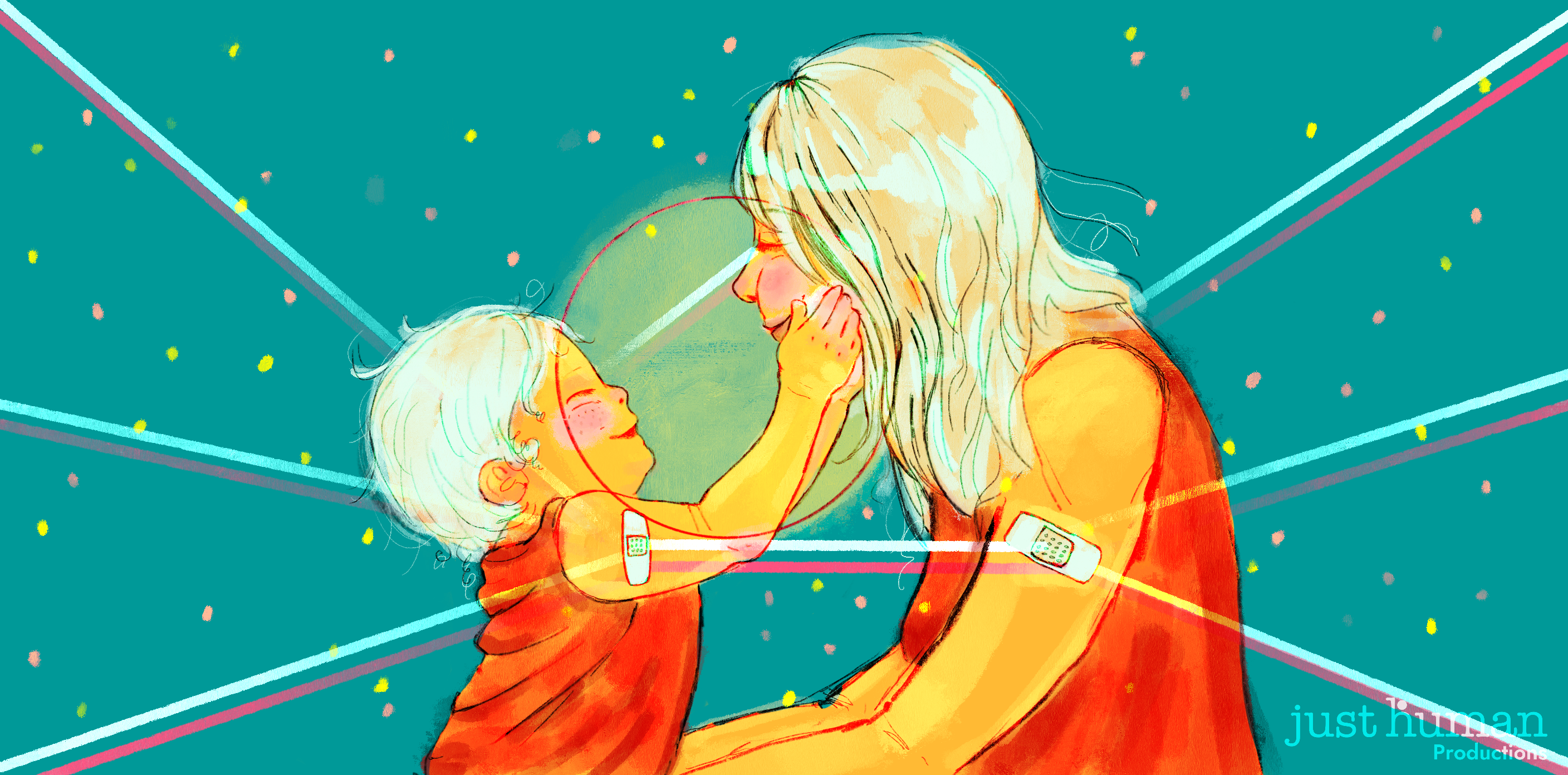“I think pro-vaxxers and anti-vaxxers are both just trying to protect their kid. A lot of that stems from a place of fear on both sides. You know, you don’t want your kid to get measles. I mean, it’s a healthy fear of vaccine-preventable diseases. I think with the anti-vaxxers, it gets to an unhealthy fear.” — Heather Simpson
When Heather Simpson was a child, she didn’t give much thought to vaccines. “It was just something that we did. We went, they hurt, and we got McDonalds afterwards,” she recalls with a laugh. It wasn’t until much later in her life, once she became pregnant with her first child, that she started to feel some unease around vaccination. In episode 65 of EPIDEMIC, Heather opens up to Dr. Céline Gounder about how the combination of motherly instincts, fear, and misinformation led her, for a time, down a path of anti-vaccination — and later, to vaccine advocacy.
Heather wanted to raise her baby in the safest, most natural way possible. She began to research organic foods and natural birthing practices — everything she could to prepare herself to be the best new mother she could be. But during her research, she came across a video about vaccines and children. It was a potent, emotionally charged film filled with false information, blaming a plethora of disabilities and diseases on vaccines, including Sudden Infant Death Syndrome (SIDS). The thought of SIDS so alarmed Simpson that she began to feel vaccinating her child was simply a risk too high to take. “It completely freaked me out, they just seem so genuine,” Heather says of the talking heads in the video, “So caring, so kind. So well-researched. The way they talk… it just seemed like, if they’re that genuine… it must be true.”
But despite its convincing tone, the video was false. Vaccines are a safe and effective way to prevent disabilities and diseases, not cause them. But an overabundance of compelling misinformation — and the absence of accessible, accurate information — creates opportunities for fiction to seem like fact. This misinformation pointed Heather toward anti-vaccination groups on social media whose members ranged from concerned mothers to conspiracy theorists. In that space, she became actively anti-vaccination — and she wasn’t quiet about it.
But then one day, Heather received a phone call from a friend, a nurse who was aware of Heather’s views on vaccination. The nurse explained that one of her friends had just lost a child to the measles virus. They began to discuss vaccines — and Simpson’s fear of them — regularly and with compassion. “She talked me through each one of my fears… Slowly — I mean, it took two years. That, sometimes, is what it takes.” This led Heather to have conversations with other concerned mothers who did vaccinate with more of an open mind. Heather found solace in what they all had in common: each parent wanted what was best for their child and had natural concerns about making choices for their child’s health. What had changed, however, was Heather’s understanding of the science and safety of vaccines. “I kind of feel that doctors feel that anti-vaxxers are kind of past the point of no return,” she explained to Dr. Gounder. “And so I don’t feel like they give enough time because they feel like it’s just going to be pointless. And it’s actually not pointless at all. It probably would have changed my mind [to vaccinate].”
Now, Heather works for Voices for Vaccines — a parent-led organization that provides scientifically-sound information about childhood vaccinations. She stresses the importance of clear, empathic dialogue between health care providers and parents lacking vaccine literacy.
Also in this episode, Dr. Gounder goes into deeper detail about the historical movements that fueled concerns about vaccination. To hear the full conversation with Dr. Gounder’s other guests, including Jonathan Berman, Elena Conis, and Rebecca Onion, listen to EPIDEMIC S1E65: Vaccines and Motherly Love.
